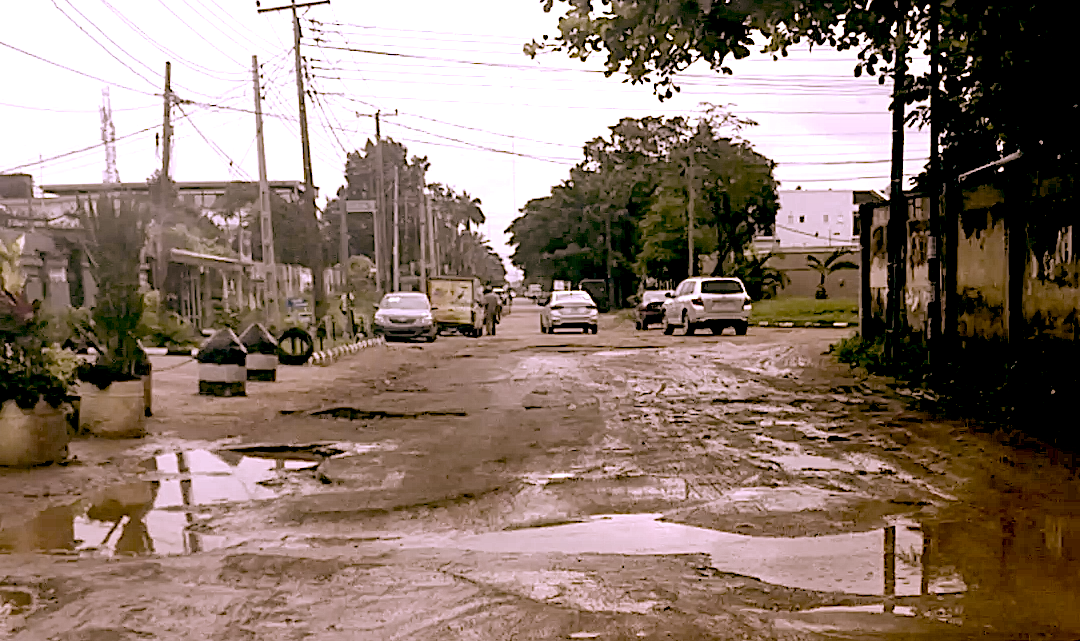Nigerian businesses and business owners struggle with low productivity because of the state of infrastructure in Nigeria.
It’s difficult to start or grow your business in an environment where the infrastructure is not enabling businesses to flourish. Inconsistent electricity and bad roads can severely increase your operational cost-cutting into your profits
For prudent business builders, it is important to understand how the current state of infrastructure in Nigeria can affect your business.
This will allow you to be aware of the risk and hopefully minimize these risks as you grow your business in Nigeria.
Here are the main factors in Nigeria’s infrastructural landscape that you need to be aware of for your business
Power Infrastructure
Nigeria is a country that’s still plagued with inconsistent power supply and distribution. Currently, Nigeria has an installed power generating capacity of 12.5 Gigawatts (GW) and is operating at a capacity of only 3.9 GW.
With that said, it is estimated that Nigeria’s electricity demand is between 98 to 160 GW when you take into account Nigeria’s population and the average consumption level of comparable countries.
Besides the large generation gap, there are other issues present that have led to the low electricity access rate of 45 percent for Nigerians.
These challenges are pertinent to businesses that require a consistent power supply to be operational.
Nigerian businesses have to rely excessively on diesel generators to supplement the electricity provided from the national grid.
This tremendously increases the cost of running a business in Nigeria, as the cost of power is 3.8x what it takes business running strictly from the grid.
As a business builder, you have to factor the current power infrastructure in Nigeria into your business model or find alternative power solutions that will make your business more profitable.
Road Infrastructure in Nigeria
The road network and infrastructure in Nigeria have an estimated length of 200,000km of which 18% is owned by the federal government, 16% owned by the state government and 66% (mostly earth roads) are owned by the local government.
About 90% of goods and people moved within the country are transported by road. Unfortunately, the state of most roads in Nigeria is sub-standard with frequent pot-holes caused by a poor maintenance culture.
The damage to products and vehicles severely increases a business’ distribution costs with a lot of unproductive time spent in traffic trying to get your products to your customers or to the warehouse.
A way to navigate this is to work with third-party logistics companies that have a more efficient way of distributing products around the country. Local logistics companies are popping up to help businesses overcome these challenges.
Kobo 360, a logistics technology company, is one of these companies helping businesses ease the movement of their products across the country.
Be clear to have an efficient distribution strategy to overcome the challenges of the road infrastructure in Nigeria.
Transportation
Besides the road network, there are other functional transportation systems that vary from developing to fully-developed.
The air transport system within the country is highly functional for the transportation of people, but not fully utilized to transport goods.
The railway system and inland waterways infrastructure in Nigeria are also not developed and utilized. As the Africa free continental trade agreement (AfCFTA) has come into place to facilitate movement and trade across the African continent. The available transportation infrastructure within each country has to be taken into account as you decide where to import or export goods and align your supply chain for the African markets.
Ports
In Nigeria, over 90% of all the goods that are imported into the country are brought through the ports in Lagos.
The Onne port complex which is located near the city of Port Harcourt services mainly the oil & gas sector and accounts for over 65% of the export cargo through the Nigerian Sea Port.
The ports infrastructure in Nigeria has proved challenging for importers and exporters because of the state of the roads leading towards and away from the ports.
Decongesting access to the ports is a major priority for the Nigerian government as a way of improving the ease of doing business in the country.
However, Nigeria is ranked 110 of 160 countries according to World Banks’ Logistics Performance Indicator (LPI) which measures factors such as timeliness, infrastructure, customs procedures, tracking & tracing.
Nigeria’s overall LPI performance is particularly weakened by its performance along the “customs procedure” axis, with surprisingly above-average performance in timeliness.
Make sure to think about how to get your good in and out of Nigeria by working with local resource or logistics agents that have the right expertise in navigating the port processes in Nigeria.
Markets
As you develop your business in Nigeria, you want to know exactly where your customers are, where they go to purchase the type of solutions you offer, and how you’re going to deliver your products to them.
A good amount of products and services in Nigeria actually are still purchased in traditional open markets. The infrastructure in these open markets is not the most advanced.
Keep this in mind as you think about durability, packaging, and displays for your goods.
By being familiar with the environment where your products are mostly purchased, you would have a good sense of the challenges that your partners and end-users will encounter during the sales process.
Understand the limitation of infrastructure in Nigeria
The current infrastructure in Nigeria can really affect how you build out your supply chain, how you think about marketing, and how you get your products into the hands of your end-users.
By understanding the limitations of the infrastructure available, you can plan your business operations to minimize the effects of these challenges as you scale your business and focus on growth in Africa’s growing markets.

